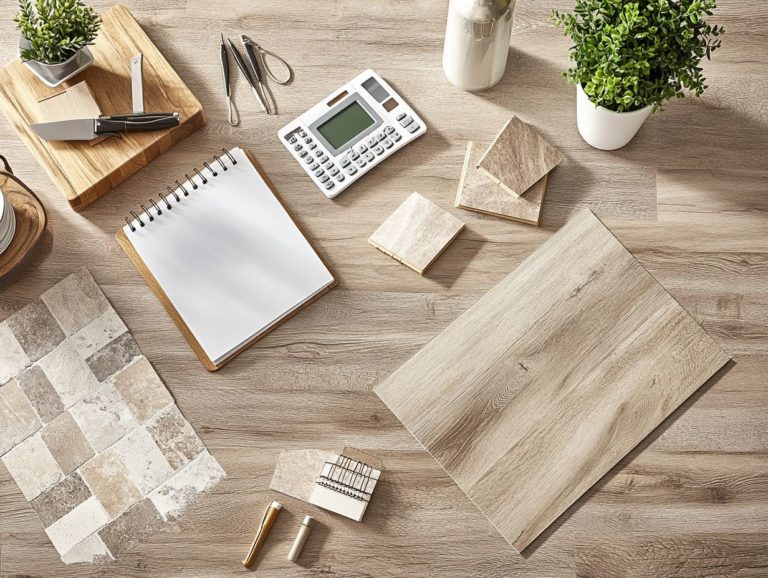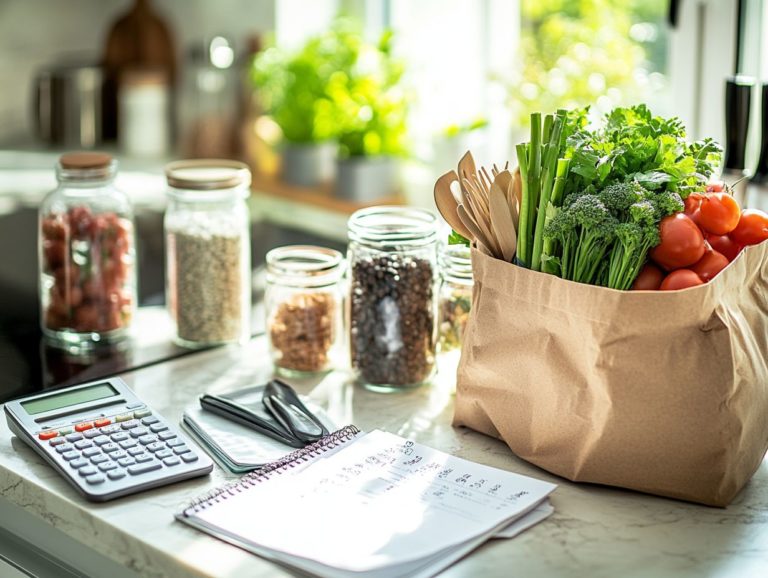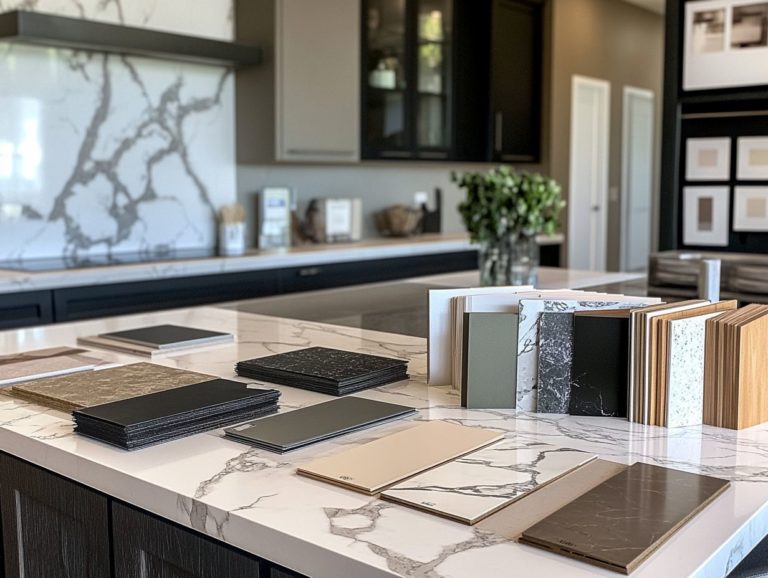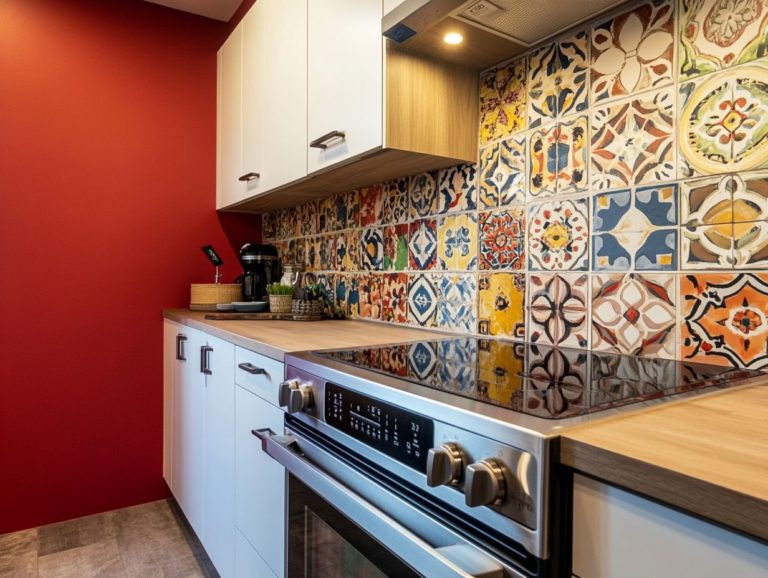A Step-by-Step Guide to Kitchen Budgeting
Managing a kitchen can sometimes feel like navigating a culinary labyrinth, particularly when it comes to finances. Recognizing the significance of kitchen budgeting is vital for anyone aiming to optimize their culinary environment.
This guide will walk you through the essential steps of budgeting, from evaluating your kitchen needs to crafting a realistic budget that aligns with your lifestyle. You’ll uncover strategies for monitoring expenses, maximizing your budget, and adapting it as your requirements evolve over time.
Get ready to take charge of your kitchen finances!
Contents
Key Takeaways:
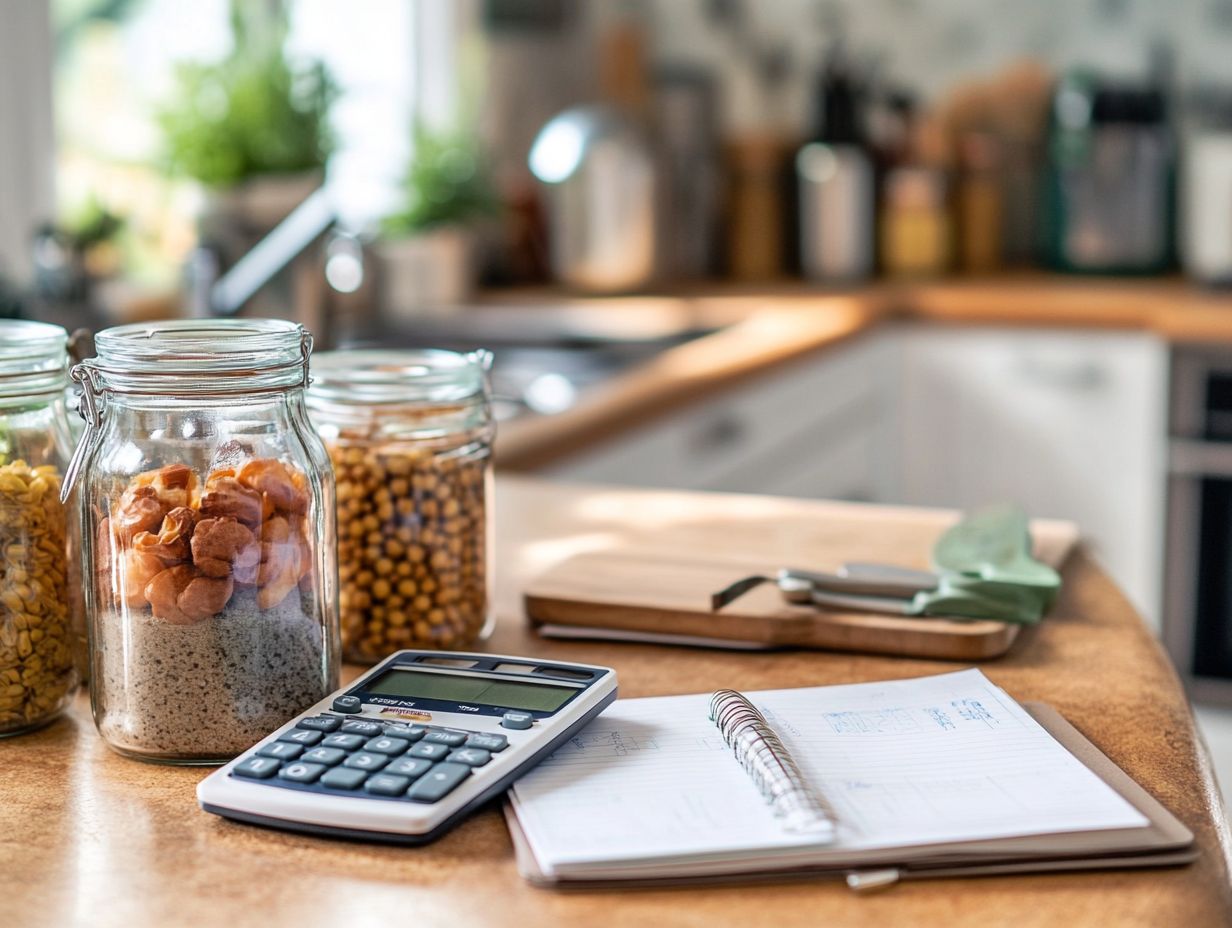
Proper budgeting is your secret weapon for managing a kitchen! It helps you stay within limits while ensuring you cover all vital expenses. Prioritizing needs over wants and setting a realistic budget are key steps in successful kitchen budgeting.
Consistently tracking and managing expenses, along with finding ways to save and adjust your budget over time, can help maximize your kitchen budget.
Understanding the Importance of Kitchen Budgeting
Understanding kitchen budgeting is crucial if you’re starting a remodel. It greatly affects both your costs and how well your new kitchen meets your needs.
A thoughtfully crafted budget enables you to prioritize key renovation elements—like cabinetry, countertops, and appliances—ensuring that your kitchen not only fulfills aesthetic desires but also meets functional needs, all while keeping your spending in check.
A clearly defined kitchen budget aligns your renovation priorities with your vision, making it easier to make informed decisions during the remodeling journey.
Why Budgeting is Essential for Kitchen Management
Budgeting is crucial for effective kitchen management, as it guarantees that every key aspect of your remodel—from cabinetry to decorative lighting—is appropriately funded and aligned with your renovation priorities.
By allocating your funds wisely, you can identify essential items and create distinct kitchen zones, such as cooking, prep, and dining areas.
For example, a quality kitchen appliance typically costs between $1,500 and $5,000, while upgrading fixtures might require a budget of around $1,000 to $3,000.
With a meticulously planned budget, you can prioritize these essential expenses and manage costs more effectively, helping to mitigate the risk of overspending.
This organized approach not only streamlines project execution but also ensures a cohesive design that truly reflects your personal style and needs.
Assessing Your Kitchen Needs and Wants
Assessing your kitchen needs and desires is a crucial step in the remodeling journey. This process enables you to differentiate between essential elements, such as cabinetry and appliances, and optional enhancements like decorative lighting and luxury countertops. This clarity will guide your decisions, ensuring your remodel aligns perfectly with both functionality and aesthetics.
Identifying Necessary and Optional Expenses
Identifying necessary and optional expenses is essential for effective kitchen budgeting. It allows you to allocate funds wisely for crucial kitchen fixtures while also exploring trendy upgrades.
In your kitchen planning journey, distinguishing between what you truly need and what you merely desire will create a more streamlined approach to budgeting. Necessary expenses often include installation costs, plumbing fixtures, cabinetry, and durable countertops—elements that ensure both functionality and longevity.
Conversely, optional items might feature high-end appliances, decorative lighting, or the latest color trends in cabinetry. While modern appliances can certainly enhance meal preparation efficiency and add a stylish flair, it’s vital to prioritize those foundational elements that guarantee your kitchen’s overall effectiveness.
Current kitchen trends, like open shelving or smart technology, can be quite tempting. However, the real skill lies in discerning which features genuinely elevate your kitchen’s usability, ensuring a successful renovation that meets both your aesthetic desires and practical needs.
Creating a Realistic Budget
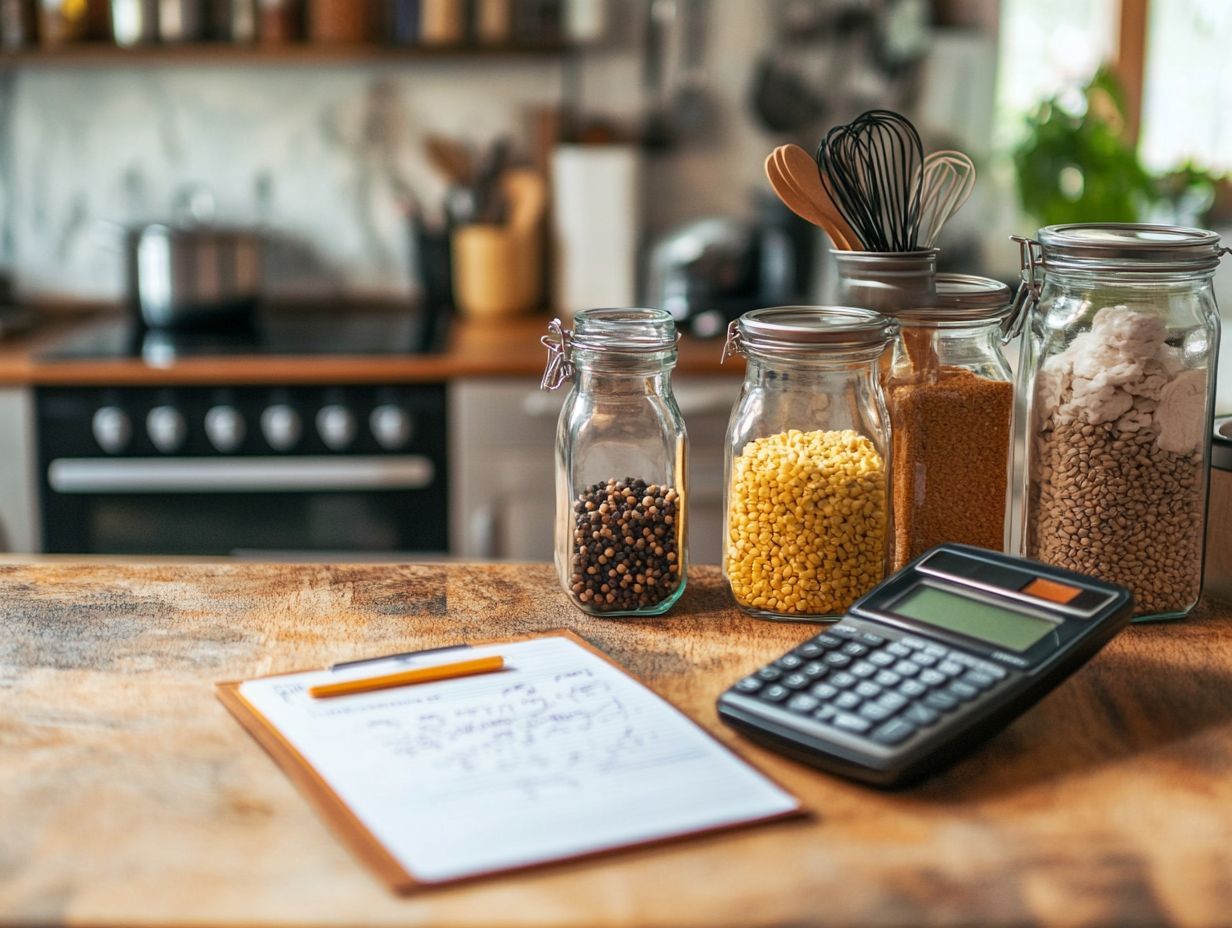
Creating a realistic budget for your kitchen remodel requires a thorough evaluation of all potential costs. You need to consider everything from cabinetry and countertops to appliances.
It’s essential to obtain quotes for both materials and installation. This ensures your budget aligns seamlessly with your renovation goals. This thoughtful approach will help you craft a kitchen that reflects your vision without financial surprises.
Tips for Setting a Budget that Works for You
Setting a budget that suits your needs is crucial for a successful kitchen remodel. Here are some effective tips to help you navigate the costs.
- Differentiate between essential upgrades and aesthetic changes.
- Focus on countertops and cabinetry that enhance functionality.
- Know what usually costs more, like labor and materials, to make informed decisions.
- Don’t overlook financing options, such as home equity loans, which can provide needed capital without straining your finances.
- Unexpected expenses can arise, but flexibility helps you stay on budget while creating your dream kitchen.
Tracking and Managing Expenses
Tracking and managing expenses during your kitchen remodel is crucial. This ensures your budget remains in harmony with your renovation goals while keeping you within the financial boundaries you set.
By maintaining a careful eye on your spending, you can seamlessly steer your project toward success without sacrificing financial stability.
Effective Strategies for Staying Within Budget
Implementing strategies to stay within budget during your kitchen remodel can enhance your financial stability and elevate the design process. Focus on the latest kitchen trends and essential features.
Set clear limits on discretionary spending. This way, you can prioritize the must-have elements of your kitchen without being sidetracked by tempting upgrades.
Research current kitchen trends that fit your defined budget. This ensures your choices are stylish and practical.
Exploring cost-effective materials and energy-efficient appliances can lead to substantial savings, maximizing both the aesthetic appeal and functionality of your space.
By adopting a proactive approach to budget management—like tracking your expenses regularly and hunting for discounts—you can create your dream kitchen without overstretching your finances.
Maximizing Your Budget
Maximizing your budget during a kitchen remodel is crucial for achieving your desired results without sacrificing quality.
There are countless strategies to save and allocate funds effectively across the essential components of your kitchen.
Ways to Save and Cut Costs in the Kitchen
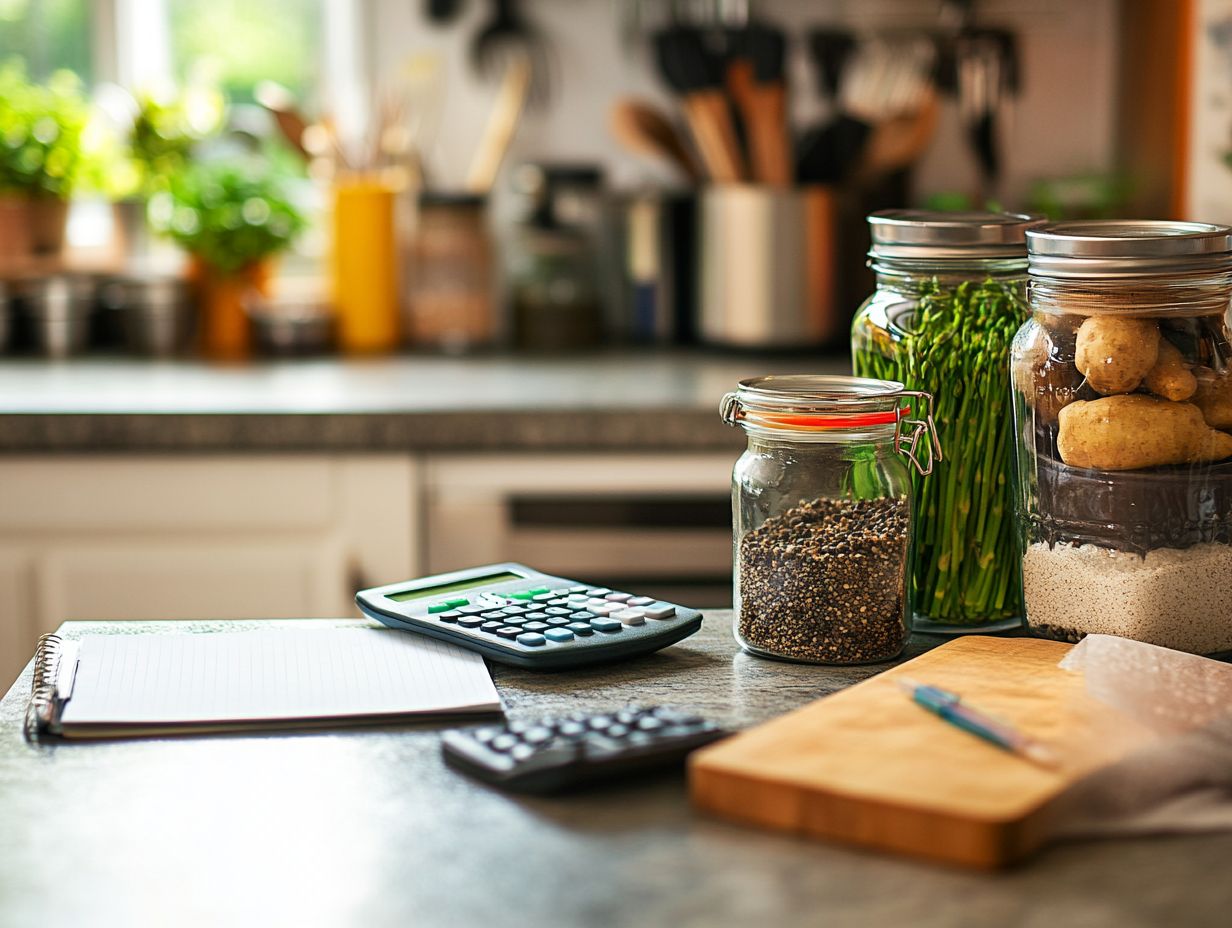
Finding effective ways to save and cut costs can transform your remodeling project. You can enhance the aesthetics of your kitchen while staying comfortably within your budget.
With thoughtful planning and a dash of creativity, achieving a stunning kitchen without overspending is within your reach. For instance, exploring budget-friendly suppliers can reveal remarkable deals on quality materials.
Consider investing in cabinets from retailers like IKEA. They can dramatically lower your expenses while offering stylish options that elevate your space. Embracing DIY techniques, such as painting cabinets or installing new hardware, can also lead to significant savings on labor costs.
This gives you the perfect opportunity to personalize your kitchen while keeping your budget in check. By leveraging these strategies, you can achieve remarkable transformations that reflect both beauty and financial savvy.
Reassessing and Adjusting Your Budget
Reassessing and adjusting your budget during a kitchen remodel is crucial. This practice enhances your financial planning and helps you respond to changes in costs and design.
Being flexible keeps your project on track. You won’t have to compromise on your vision or finances.
How to Adapt Your Budget Over Time
Adapting your budget is key to a successful remodel. It helps you handle unexpected changes and ensures a great experience.
Stay open to adjustments to easily deal with challenges that arise. Regularly review your financial plan and identify areas for flexibility.
Keep communication open with your contractors and designers. Their insights can help you make timely spending adjustments.
Think of your budget as a living document. It should evolve with your project to align with your kitchen goals.
Frequently Asked Questions
What is a kitchen budget?
A kitchen budget is a financial plan that outlines the estimated costs for renovating your kitchen.
Why is it important to have a kitchen budget?
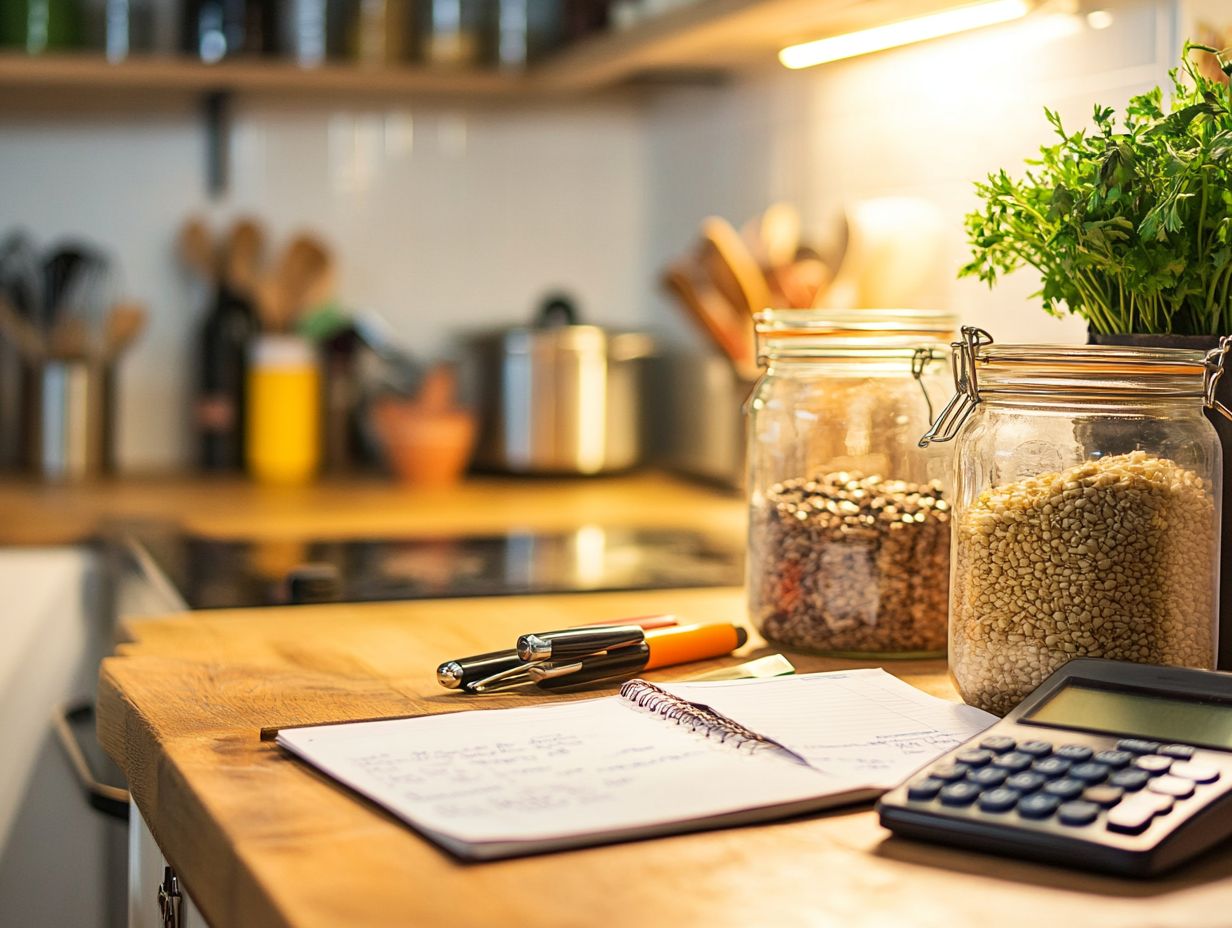
A kitchen budget helps you stay organized and avoid overspending.
What are the steps to creating a kitchen budget?
Steps to create a budget include assessing your needs, researching costs, and tracking expenses during the project.
How can I determine my kitchen budget?
To determine your budget, consider your overall finances, the project size, and the expected costs for materials and labor.
What are some common kitchen budgeting mistakes to avoid?
Avoid mistakes like underestimating costs, skipping a contingency fund, and neglecting to prioritize expenses.
How can I stick to my kitchen budget?
Regularly review your budget, prioritize expenses, and make informed decisions.
